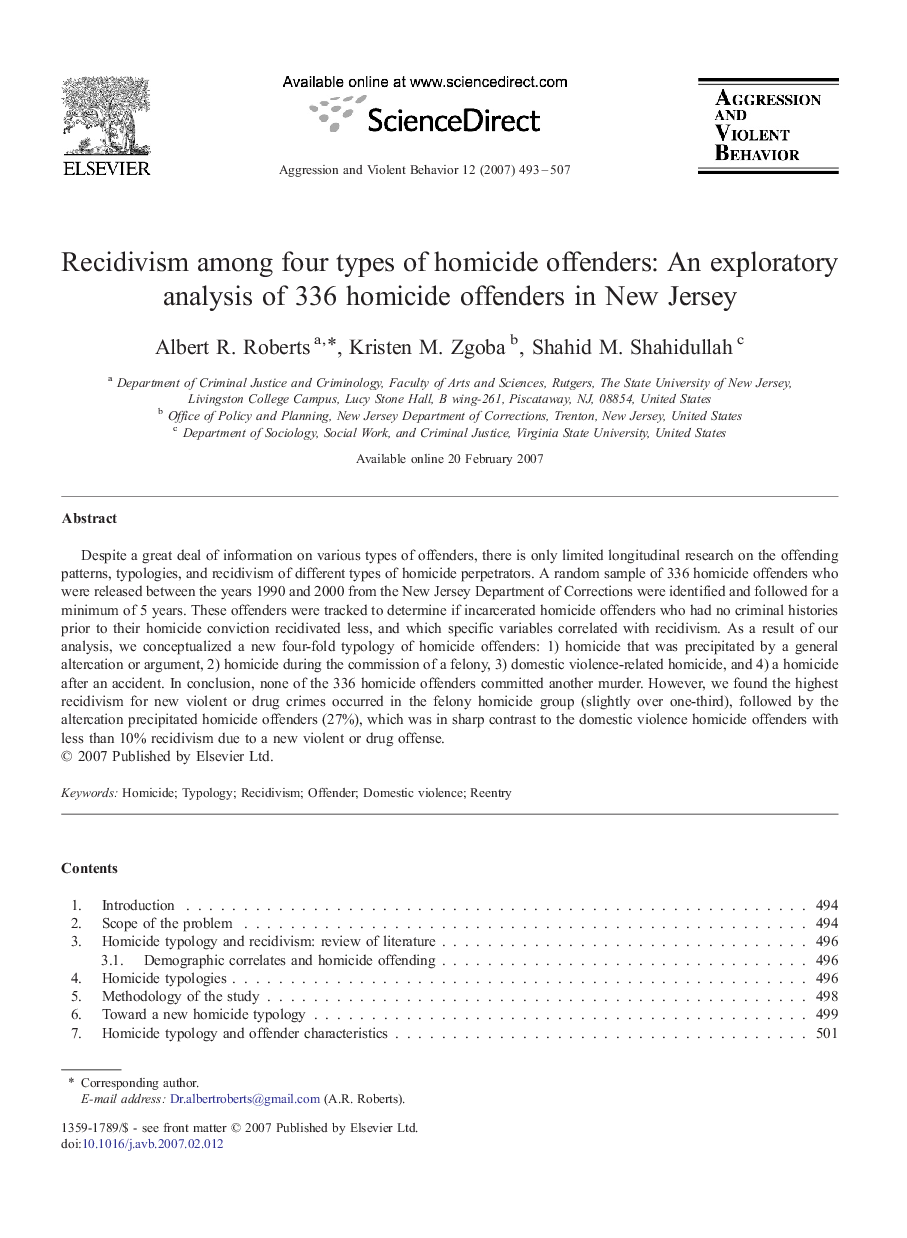| Article ID | Journal | Published Year | Pages | File Type |
|---|---|---|---|---|
| 95005 | Aggression and Violent Behavior | 2007 | 15 Pages |
Despite a great deal of information on various types of offenders, there is only limited longitudinal research on the offending patterns, typologies, and recidivism of different types of homicide perpetrators. A random sample of 336 homicide offenders who were released between the years 1990 and 2000 from the New Jersey Department of Corrections were identified and followed for a minimum of 5 years. These offenders were tracked to determine if incarcerated homicide offenders who had no criminal histories prior to their homicide conviction recidivated less, and which specific variables correlated with recidivism. As a result of our analysis, we conceptualized a new four-fold typology of homicide offenders: 1) homicide that was precipitated by a general altercation or argument, 2) homicide during the commission of a felony, 3) domestic violence-related homicide, and 4) a homicide after an accident. In conclusion, none of the 336 homicide offenders committed another murder. However, we found the highest recidivism for new violent or drug crimes occurred in the felony homicide group (slightly over one-third), followed by the altercation precipitated homicide offenders (27%), which was in sharp contrast to the domestic violence homicide offenders with less than 10% recidivism due to a new violent or drug offense.
